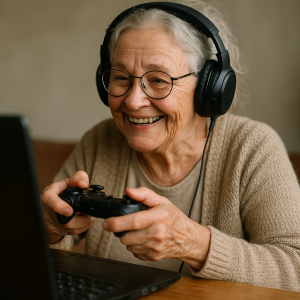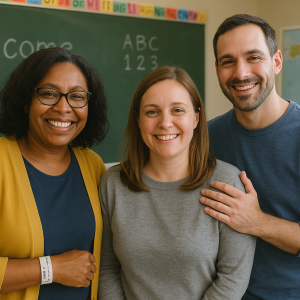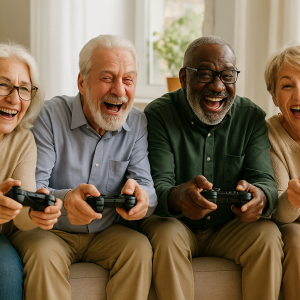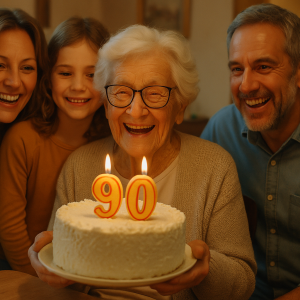During the height of the COVID-19 pandemic, isolation hit seniors harder than most. Nursing homes closed their doors, family visits stopped, and for many elderly individuals, days passed in silence. But out of this difficult time came a story of hope and connection, led by someone you might not expect: an 18-year-old high school student named Yunying Zhang.
Yunying, who grew up in Michigan, had always been close to her grandparents. When lockdowns began, she noticed how her elderly relatives became increasingly lonely. They missed birthdays, dinners, and simple conversations. That sparked an idea: if technology could keep her connected to school and friends, why not use it to help seniors too?
She founded a project called “Lifting Hearts With the Arts.” The initiative paired high school and college students with seniors for weekly virtual visits. At first, the idea was simple—students would call seniors to talk, read books, or even sing. But it quickly grew into something much larger.
For many seniors, these calls became the highlight of their week. Eighty-three-year-old Dorothy, who lived in a senior home, said she hadn’t smiled so much in years. “I never thought I’d be chatting with a teenager about her favorite music,” she laughed. “But it makes me feel alive again.”
On the other side, the students were equally touched. Many admitted they had never spent much time around elderly people outside their own families. Suddenly, they were learning about history directly from those who lived it—stories of wars, immigration, first loves, and lessons learned over decades.
One volunteer, Alex, said, “I signed up because I wanted to help with loneliness. But honestly, I think I’ve learned more from them than they have from me.”
As the program expanded, Yunying organized group activities too. Students performed music virtually, reading clubs were formed, and even online art sessions allowed seniors to paint along with young artists. For seniors who had been told to stay isolated, this felt like a bridge back to community and joy.

Health experts praised the effort, noting that loneliness among seniors is not just sad—it’s dangerous. It increases the risk of depression, heart disease, and cognitive decline. By building friendships through screens, “Lifting Hearts With the Arts” didn’t just brighten days; it actively protected health.
News of the project spread quickly. Local TV channels highlighted the creative initiative, and national outlets soon followed. The story resonated with families across the country who had seen their own loved ones struggle with isolation.
What made the program so successful wasn’t just the technology—it was the authenticity. These weren’t scripted sessions. They were genuine conversations, where seniors felt heard and valued, and young people felt inspired and respected.
Yunying herself remained humble. “I just wanted to make people happy,” she told a reporter. “I didn’t expect it to grow this much. But it shows what happens when we connect generations—we all become stronger.”
As restrictions eased, some of the friendships moved offline. Students began visiting seniors in person, delivering flowers, letters, or simply sharing a walk in the park. Lifelong bonds had formed, many of which continue today.
One family member shared that her father, who rarely spoke after his wife passed away, began laughing again during his weekly calls. “He felt like someone cared, and that gave him a reason to keep going.”
Now, Yunying plans to continue the program into college, expanding it nationwide. Her dream is that every senior who feels lonely will have a student friend to brighten their week.
The story of Yunying and her project is more than a pandemic success—it’s a blueprint for the future. It shows how simple acts of kindness, powered by technology, can bridge the widest of gaps. It proves that age differences melt away when hearts connect.
In a world where screens often divide generations, Yunying used them to unite. And in doing so, she reminded us all of something timeless: friendship has no age limit.









